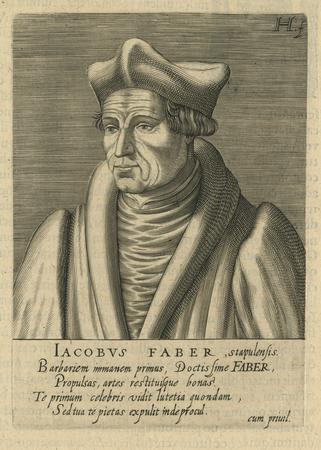401. Word Perfect: Logic and Language in Renaissance France
Jacques Lefèvre d’Étaples and Julius Caesar Scaliger fuse Aristotelianism with humanism to address problems in logic and literary aesthetics.
Themes:
• E.F. Rice Jr, Prefatory Epistles of Jacques Lefèvre d’Étaples and Related Texts (New York: 1972).
---
• G. Bedouelle, “Attacks on the Biblical Humanism of Jacques Lefèvre d’Étaples,” in E. Rummel (ed.), Biblical Humanism and Scholasticism in the Age of Erasmus (Leiden: 2008), 117-141.
• V. Hall, Jr., “Life of Julius Caesar Scaliger (1484-1558),” Transactions of the American Philosophical Society 40 (1950), 85-170.
• K. Jensen, Rhetorical Philosophy and Philosophical Grammar: Julius Caesar Scaliger’s Theory of Language (Munich: 1990).
• P.E. Hughes, Lefèvre: Pioneer of Ecclesiastical Renewal in France (Grand Rapids: 1984).
• D.A. Lines, “Lefèvre and French Aristotelianism on the Eve of the Sixteenth Century,” in G. Frank and A. Speer (eds), Der Aristotelismus in der Frühen Neuzeit: Kontinuität oder Wiederangeignung? (Wiesbaden: 2007), 273–90.
• R. Oosterhoff, Making Mathematical Culture: University and Print in the Circle of Lefèvre d’Étaples (Oxford: 2018).
• E.F. Rice Jr., “Humanist Aristotelianism in France: Jacques Lefèvre d’Étaples and His Circle,” in A.H.T. Levi (ed.), Humanism in France at the End of the Middle Ages and in the Early Renaissance (Manchester: 1970), 132-49.
• K. Sakamoto, Julius Caesar Scaliger, Renaissance Reformer of Aristotelianism: a Study of His Exotericae Exercitationes (Leiden: 2016).
Stanford Enyclopedia of Philosophy: Jacques Lefèvre d’Étaples







Comments
Add new comment